-
About
- About Listly
- Community & Support
- Howto
- Chrome Extension
- Bookmarklet
- WordPress Plugin
- Listly Premium
- Privacy
- Terms
- DMCA Copyright
- © 2010-2025 Boomy Labs

 Faisal Khan
Faisal Khan
Listly by Faisal Khan
Curated list of best TED Talks on Education & Learning. Thoughtful. Inspiring. Learning.
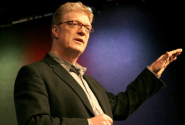
Sir Ken Robinson makes an entertaining and profoundly moving case for creating an education system that nurtures (rather than undermines) creativity.
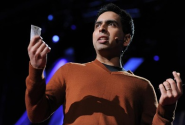
Salman Khan talks about how and why he created the remarkable Khan Academy, a carefully structured series of educational videos offering complete curricula in math and, now, other subjects. He shows the power of interactive exercises, and calls for teachers to consider flipping the traditional classroom script -- give students video lectures to watch at home, and do "homework" in the classroom with the teacher available to help.
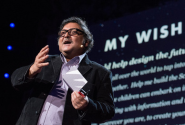
Onstage at TED2013, Sugata Mitra makes his bold TED Prize wish: Help me design the School in the Cloud, a learning lab in India, where children can explore and learn from each other -- using resources and mentoring from the cloud. Hear his inspiring vision for Self Organized Learning Environments (SOLE) , and learn more at tedprize.org .
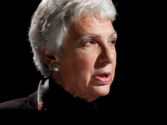
Bennington president Liz Coleman delivers a call-to-arms for radical reform in higher education. Bucking the trend to push students toward increasingly narrow areas of study, she proposes a truly cross-disciplinary education -- one that dynamically combines all areas of study to address the great problems of our day.

Peter L. Benson, president and CEO of Minneapolis-based Search Institute, is one of the world's leading authorities on positive human development.
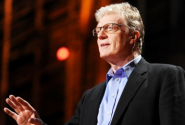
In this poignant, funny follow-up to his fabled 2006 talk, Sir Ken Robinson makes the case for a radical shift from standardized schools to personalized learning -- creating conditions where kids' natural talents can flourish.
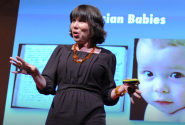
"Babies and young children are like the R&D division of the human species," says psychologist Alison Gopnik. Her research explores the sophisticated intelligence-gathering and decision-making that babies are really doing when they play.
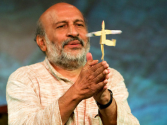
At the INK Conference, Arvind Gupta shares simple yet stunning plans for turning trash into seriously entertaining, well-designed toys that kids can build themselves -- while learning basic principles of science and design.
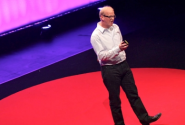
Charles Leadbeater went looking for radical new forms of education -- and found them in the slums of Rio and Kibera, where some of the world's poorest kids are finding transformative new ways to learn. And this informal, disruptive new kind of school, he says, is what all schools need to become.

By turn hilarious and haunting, poet Shane Koyczan puts his finger on the pulse of what it's like to be young and ... different. "To This Day," his spoken-word poem about bullying, captivated millions as a viral video (created, crowd-source style, by 80 animators).
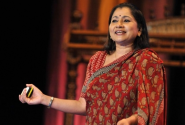
Educating the poor is more than just a numbers game, says Shukla Bose. She tells the story of her groundbreaking Parikrma Humanity Foundation, which brings hope to India's slums by looking past the daunting statistics and focusing on treating each child as an individual.
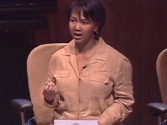
Mae Jemison is an astronaut, a doctor, an art collector, a dancer ... Telling stories from her own education and from her time in space, she calls on educators to teach both the arts and sciences, both intuition and logic, as one -- to create bold thinkers.
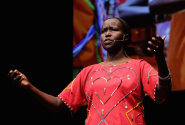
Kakenya Ntaiya made a deal with her father: She would undergo the traditional Maasai rite of passage of female circumcision if he would let her go to high school. Ntaiya tells the fearless story of continuing on to college, and of working with her village elders to build a school for girls in her community.
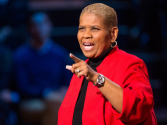
Rita Pierson, a teacher for 40 years, once heard a colleague say, "They don't pay me to like the kids." Her response: "Kids don't learn from people they don't like.'" A rousing call to educators to believe in their students and actually connect with them on a real, human, personal level.
